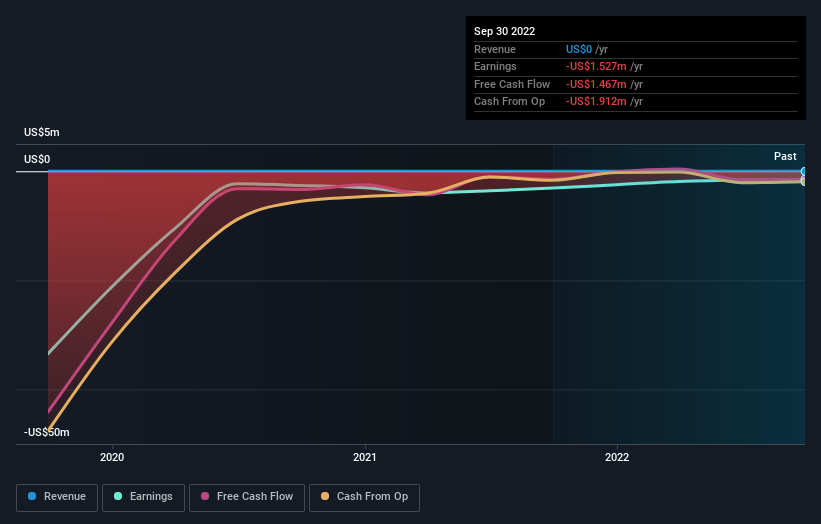Hedge funds investors control 44% of Merrimack Pharmaceuticals, Inc. (NASDAQ:MACK) and were rewarded last week after stock increased 228%
A look at the shareholders of Merrimack Pharmaceuticals, Inc. (NASDAQ:MACK) can tell us which group is most powerful. And the group that holds the biggest piece of the pie are hedge funds with 44% ownership. That is, the group stands to benefit the most if the stock rises (or lose the most if there is a downturn).
And as as result, hedge funds investors reaped the most rewards after the company's stock price gained 228% last week. One-year return to shareholders is currently 188% and last week’s gain was the icing on the cake.
Let's delve deeper into each type of owner of Merrimack Pharmaceuticals, beginning with the chart below.
Check out our latest analysis for Merrimack Pharmaceuticals
What Does The Institutional Ownership Tell Us About Merrimack Pharmaceuticals?
Institutions typically measure themselves against a benchmark when reporting to their own investors, so they often become more enthusiastic about a stock once it's included in a major index. We would expect most companies to have some institutions on the register, especially if they are growing.
We can see that Merrimack Pharmaceuticals does have institutional investors; and they hold a good portion of the company's stock. This implies the analysts working for those institutions have looked at the stock and they like it. But just like anyone else, they could be wrong. When multiple institutions own a stock, there's always a risk that they are in a 'crowded trade'. When such a trade goes wrong, multiple parties may compete to sell stock fast. This risk is higher in a company without a history of growth. You can see Merrimack Pharmaceuticals' historic earnings and revenue below, but keep in mind there's always more to the story.
It would appear that 44% of Merrimack Pharmaceuticals shares are controlled by hedge funds. That catches my attention because hedge funds sometimes try to influence management, or bring about changes that will create near term value for shareholders. Our data shows that Newtyn Management, LLC is the largest shareholder with 13% of shares outstanding. With 9.5% and 9.3% of the shares outstanding respectively, Western Standard, LLC and 22NW, LP are the second and third largest shareholders. Furthermore, CEO Gary Crocker is the owner of 1.0% of the company's shares.
On further inspection, we found that more than half the company's shares are owned by the top 7 shareholders, suggesting that the interests of the larger shareholders are balanced out to an extent by the smaller ones.
Researching institutional ownership is a good way to gauge and filter a stock's expected performance. The same can be achieved by studying analyst sentiments. We're not picking up on any analyst coverage of the stock at the moment, so the company is unlikely to be widely held.
Insider Ownership Of Merrimack Pharmaceuticals
The definition of company insiders can be subjective and does vary between jurisdictions. Our data reflects individual insiders, capturing board members at the very least. The company management answer to the board and the latter should represent the interests of shareholders. Notably, sometimes top-level managers are on the board themselves.
Most consider insider ownership a positive because it can indicate the board is well aligned with other shareholders. However, on some occasions too much power is concentrated within this group.
Shareholders would probably be interested to learn that insiders own shares in Merrimack Pharmaceuticals, Inc.. In their own names, insiders own US$2.1m worth of stock in the US$168m company. It is good to see some investment by insiders, but we usually like to see higher insider holdings. It might be worth checking if those insiders have been buying.
General Public Ownership
The general public-- including retail investors -- own 34% stake in the company, and hence can't easily be ignored. This size of ownership, while considerable, may not be enough to change company policy if the decision is not in sync with other large shareholders.
Next Steps:
While it is well worth considering the different groups that own a company, there are other factors that are even more important. Take risks for example - Merrimack Pharmaceuticals has 2 warning signs (and 1 which is a bit concerning) we think you should know about.
Of course this may not be the best stock to buy. So take a peek at this free free list of interesting companies.
NB: Figures in this article are calculated using data from the last twelve months, which refer to the 12-month period ending on the last date of the month the financial statement is dated. This may not be consistent with full year annual report figures.
Have feedback on this article? Concerned about the content? Get in touch with us directly. Alternatively, email editorial-team (at) simplywallst.com.
This article by Simply Wall St is general in nature. We provide commentary based on historical data and analyst forecasts only using an unbiased methodology and our articles are not intended to be financial advice. It does not constitute a recommendation to buy or sell any stock, and does not take account of your objectives, or your financial situation. We aim to bring you long-term focused analysis driven by fundamental data. Note that our analysis may not factor in the latest price-sensitive company announcements or qualitative material. Simply Wall St has no position in any stocks mentioned.
Join A Paid User Research Session
You’ll receive a US$30 Amazon Gift card for 1 hour of your time while helping us build better investing tools for the individual investors like yourself. Sign up here


